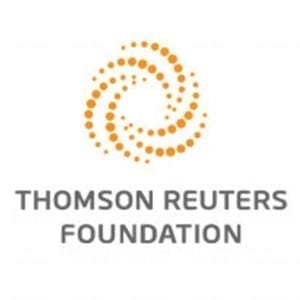The decision to appoint a goodwill ambassador can backfire if the organisation – or brand – doesn’t understand the public’s perception of their ambassador.
First, Wonder Woman fell from grace, lambasted for her curves. Next, Zimbabwean President Robert Mugabe lost his honorary status as a goodwill ambassador, deemed more strongman than beacon of U.N. hope.
So what went wrong?
The anointing – and swift firing – of goodwill ambassadors has landed the United Nations in hot water twice in less than a year and raised questions about what image it wants to project.
If you like this, subscribe here for more stories that Inspire The Future.
“The decision to appoint a goodwill ambassador can backfire if the organisation – or brand – doesn’t understand the public’s perception of their ambassador,” said Ben Lock, senior director of international affairs at Edelman, a U.S. public relations firm.
Last week Mugabe was removed as a goodwill ambassador for the World Health Organization (WHO), in the wake of outrage among Western donors and rights groups at his appointment.
Mugabe, 93, is blamed in the West for destroying Zimbabwe’s economy and for numerous human rights abuses during his 37 years leading the country as either president or prime minister.
“The appointment (of Mugabe) was a bizarre decision that could live long in memory and that risks casting a shadow over the vital work that the WHO do,” Lock told the Thomson Reuters Foundation in a phone interview, although he said the organisation had “handled its U-turn well by acting swiftly”.
Others shared his view, with Anne-Marie Batson, a British-based PR executive, saying on Twitter:
“Wrong decision to select. Right decision to deselect. Common sense prevailed though it took a chorus to make the change.”
Goodwill ambassadors – from music star Shakira for the U.N. children’s agency UNICEF to British actress Emma Watson at U.N. Women – use stature and talent to advocate for specific causes.
They are designated by the heads of United Nations agencies, and endorsed by the U.N. Secretary-General.
FEMINIST ICON?
Better known for her outfit than her human rights record, Wonder Woman’s reign as a U.N. honorary ambassador came to an end in December, less than two months after the appointment of a scantily clad, curvaceous comic book character sparked protest.
Nearly 45,000 people signed an online petition asking U.N. Secretary-General Ban Ki-moon to reconsider selection of the comic superhero as an honorary ambassador for gender equality, saying “the character’s current iteration is that of a large-breasted, white woman of impossible proportions, scantily clad in a shimmery, thigh-baring body suit.”
“While the appointment of Wonder Woman was no doubt well-intentioned, it was naïve to have proposed an overly sexualised icon to support a cause that empowers women,” Lock said.
“And it’s not like there’s a shortage of real women to choose from,” he added.
Other honorary ambassadors who fell from grace include tennis player Maria Sharapova, temporarily removed as United Nations Development Programme (UNDP) ambassador while she served a 15-month drug suspension, and Aisha Gaddafi, daughter of former Libyan leader Muammar Gaddafi, stripped of her U.N. ambassador status amid the 2011 revolt against her late father.
While organisations often rely on celebrity advocates to further social causes, celebrities can sometimes “oversimplify what are often very nuanced issues”, said Lock.
In July, UNHCR Special Envoy Angelina Jolie sparked uproar over the casting process for her latest film, after an improvised scene during auditions was slammed as cruel for taking real money away from impoverished children.
The UN and the WHO declined a request for further comment.
By Zoe Tabary @zoetabary, Editing by Lyndsay Griffiths.
If you like this, subscribe here for more stories that Inspire The Future.




































